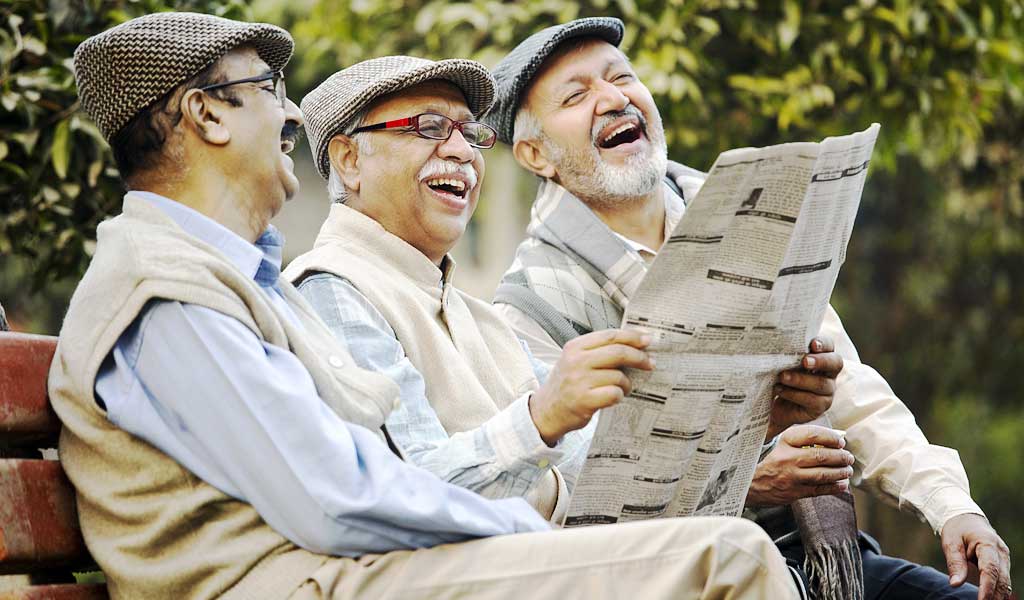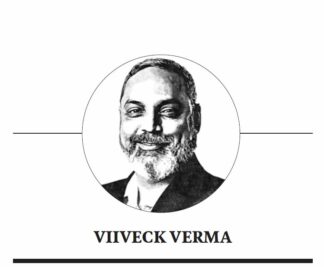Opinion: The science of ageing gracefully
We must see ageing as an opportunity to deepen our understanding of ourselves, strengthen our connections with others

By Viiveck Verma
Ageing is a universal truth, inevitable yet profoundly influenced by the choices we make daily. While the passage of time cannot be paused, the quality of those years can be profoundly shaped by how we live. Science has increasingly illuminated the pathways to ageing gracefully, demonstrating that genetics, while significant, is far from the sole determinant of our lifespan and health span. Lifestyle, in many ways, is the master key.
Also Read
- Digital Detoxing: Science-backed strategies to unplug effectively
- Opinion: Rise of minimalist living
- Invisible Scars helps victims overcome menace of domestic violence
- Opinion: Renaissance of handcrafts in a digital world
- Opinion: Preserve human touch with AI
- Opinion: Go for the Mentroach guide
- Opinion: Embrace imperfection
- Opinion: Learning from nature
The term graceful ageing often conjures images of vitality, resilience and the ability to engage meaningfully with life regardless of numerical age. It’s not about defying ageing, a futile endeavour, but embracing it with intention. This journey is both biological and behavioural, rooted in a growing body of evidence that lifestyle factors like diet, physical activity, stress management and social connections hold the power to extend not just years to life, but life to years.
Diet Matters?
Take diet, for example, one of the most scrutinised aspects of longevity research. The Mediterranean diet, rich in fruits, vegetables, whole grains and healthy fats, has been linked repeatedly to increased lifespan and reduced risk of chronic diseases. But why does it work? Beyond its anti-inflammatory and cardioprotective properties, this diet also reflects a culture of mindful eating, portion control and communal meals, all factors that contribute to overall well-being. It’s not just what you eat, it’s how and with whom you eat that matters.
Contrast this with the modern, Westernised diet, often laden with ultra-processed foods, excessive sugar and unhealthy fats. Such dietary patterns are not only linked to obesity and heart disease but also to accelerated biological ageing. The science is unambiguous; our cells respond to what we feed them. Telomeres, the protective caps on our chromosomes, shorten faster with poor diets, hastening cellular ageing and increasing the risk of age-related diseases.
Exercise, Sleep
Physical activity is another cornerstone of graceful ageing. The benefits of exercise extend far beyond the obvious physical ones, such as maintaining muscle mass, bone density and joint health. Regular physical activity promotes neuroplasticity, the brain’s ability to form new neural connections, keeping cognitive decline at bay. Studies show that even moderate activity, like brisk walking, can reduce the risk of dementia by up to 30%.
Science has illuminated the pathways to ageing gracefully, demonstrating that genetics, while significant, is far from the sole determinant of our lifespan and health span
Yet, in an age dominated by screens and sedentary lifestyles, too many of us fall short of even the minimal recommended 150 minutes of exercise per week. The next pillar of health is, of course, sleep. Often underestimated, it is the quiet architect of longevity. Research consistently shows that quality sleep is critical for immune function, memory consolidation and cellular repair. Chronic sleep deprivation is linked to conditions like Alzheimer’s, diabetes and cardiovascular disease. But the societal glorification of ‘burning the midnight oil’ often undermines the importance of rest, a reality that may cost us years of our lives.
Check Stress
Stress management is another dimension of ageing gracefully and its importance cannot be overstated. Chronic stress unleashes a cascade of harmful effects, from elevated cortisol levels to systemic inflammation. Left unchecked, these factors accelerate biological ageing, weaken the immune system and make us more susceptible to chronic illnesses. Mindfulness, meditation and practices like yoga offer proven antidotes, as do simpler, everyday habits like spending time in nature or cultivating gratitude. Social connection, perhaps one of the most underappreciated determinants of longevity, emerges repeatedly as a critical factor in ageing well.
Blue Zones, regions like Okinawa, Japan, and Sardinia, Italy, where people consistently live beyond 100, highlight the importance of community, purpose and belonging. Loneliness, on the other hand, is increasingly recognised as a public health epidemic, associated with higher risks of depression, cognitive decline and premature death. The science is certain, humans are wired for connection, and our relationships are as vital as our diets and exercise routines.
While these findings are encouraging, they also reveal a paradox. Modern life, with its conveniences and technological marvels, often works against the very habits that promote longevity. Fast food, endless streams of entertainment and the isolating nature of digital communication can erode our physical and mental well-being.
Right Choices
To age gracefully, we must actively resist these trends and reclaim control over our choices. Ageing gracefully requires more than following a checklist of healthy habits. It demands a shift in perspective. Rather than viewing ageing as a decline, we might benefit from seeing it as an opportunity, a phase to deepen our understanding of ourselves, strengthen our connections with others, and contribute meaningfully to our communities.
Ultimately, longevity is not merely about adding years to life but about enriching those years with vitality, purpose and joy. It’s a tapestry woven from countless small decisions, each contributing to the broader picture of our well-being.
The science of ageing gracefully is as much about lifestyle as it is about mindset, and the power to shape our journey lies largely in our hands. To borrow from the poet Mary Oliver, ‘What will you do with your one wild and precious life?’ The answer, quite literally, may determine how long and how well you live.

(The author is founder & CEO, Upsurge Global, co-founder, Global Carbon Warriors, and Adjunct Professor, EThames College)
Related News
-
TG EAPCET 2026 registrations begin February 19; Exams in May
7 mins ago -
Young man dragged for kms by Mercedes in Ranchi, Jharkhand HC lawyer detained
42 mins ago -
Irrawaddy dolphins found near Rushikulya river mouth in Odisha
54 mins ago -
KTR hits back at KCR critics, calls Telangana his lasting legacy
55 mins ago -
Tarique Rahman elected BNP Parliamentary Party leader, to take oath as Bangladesh PM
59 mins ago -
Telangana police have become puppets of the Congress, says Balka Suman
1 hour ago -
Bill Gates’ AI Summit attendance uncertain, conflicting reports emerge
1 hour ago -
Pixxel selects Exotrail thrusters to steer its satellites in orbit
1 hour ago




